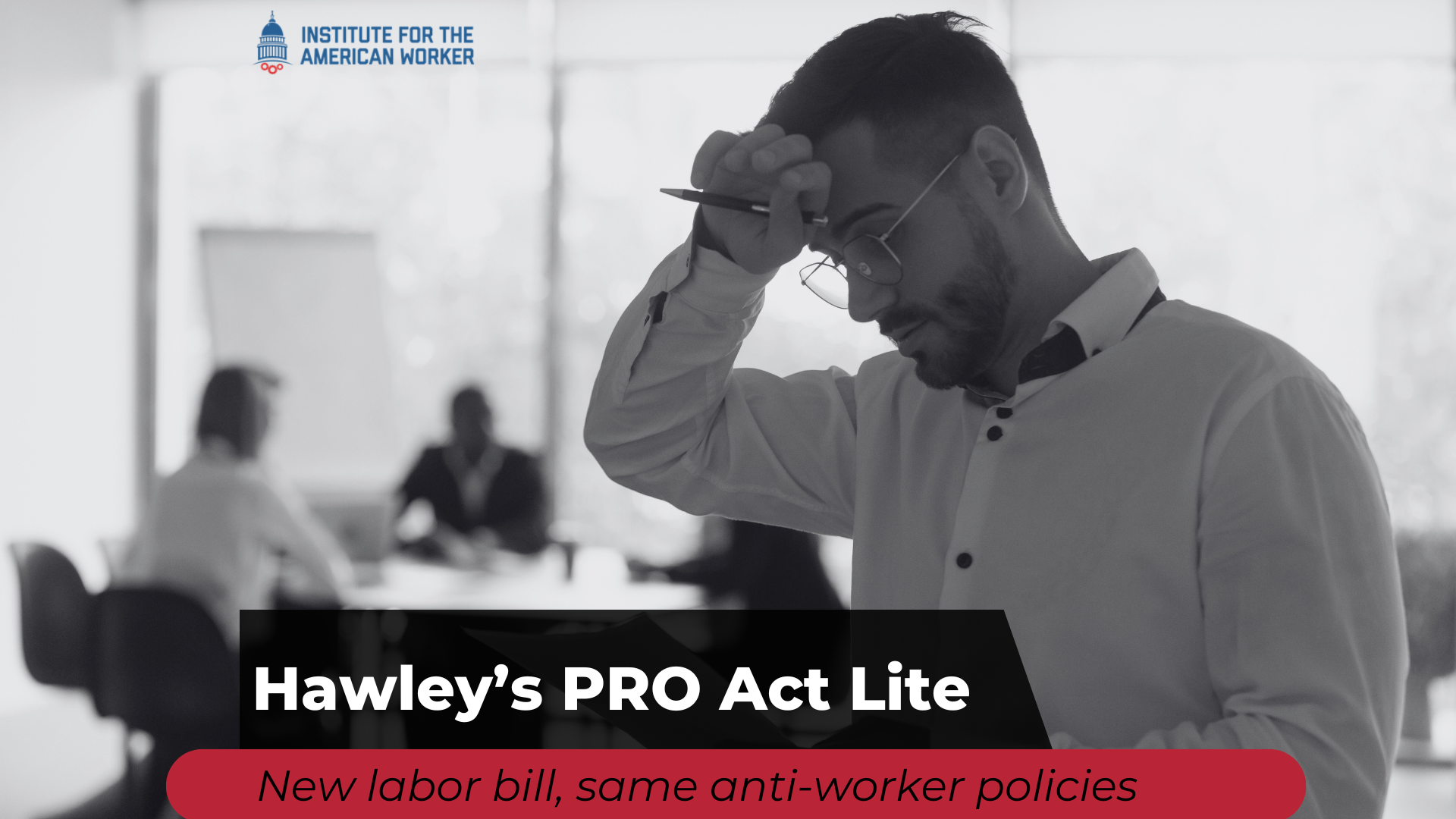Posts tagged PRO Act
A Taft-Hartley Roundup of Recent Labor News
June 25, 2025 // For just shy of 80 years, conservative Americans and the Republican Party that provides their imperfect electoral vehicle have sought to advance a policy consensus on labor relations based on three principles: ensuring union membership and participation is voluntary, scrutinizing unions’ operations in exchange for their government-granted powers, and protecting the public from the fallout from labor disputes. As America sits by the pool at the beginning of what might prove to be a long, hot summer, what news is there about the Taft-Hartley consensus?
‘With you or without you’ – The growing rift between unions and Democrats
June 21, 2025 // O’Brien said that, during a meeting he had in the summer of 2024 with unnamed Democratic senators and three other major union leaders, he opposed bringing up the Protecting the Right to Organize (PRO) Act for a Senate vote ahead of the election. This was despite the PRO Act being a wish list of union priorities. O’Brien assumed that a vote at that time would have been an act of political theater, not a serious bid to get the legislation through the Senate. That would have suited Democrats, who could claim that they voted in support of unions, without actually benefiting them. “They wanted to introduce the PRO Act, and I’m like, ‘It’s never gonna pass,’” O’Brien told Walsh. “I had a sidebar with these three other general (union) presidents and I said, ‘They’re using this as an issue to weaponize it.’” O’Brien said that the “weaponization” of the legislation made it politically toxic and therefore impossible to get enough bipartisan support.
Independent Contractors Take Center Stage for ‘Empowering the American Worker’
May 27, 2025 // However, expert witness Dr. Liya Palagashvili showed data of the deliberate harm done through California’s law AB5 and its ABC test that is also embedded in the federal Protecting the Right to Organize Act (PRO) Act and other statewide legislation seeking to restrict the work of independent professionals. Now, these results are causal, meaning we can definitely say that ABC tests cause these negative outcomes. No other studies to date have found positive employment effects from these laws. The research shows that restrictive ABC tests do not create more work opportunities. They eliminate both independent and W-2 jobs.
ATA Endorses Modern Worker Empowerment Act
May 26, 2025 // The ATA official also pointed to a Republican-sponsored bill as a tool meant to reinforce the industry’s support for the Trump-era independent contractor model. The Modern Worker Empowerment Act, introduced by Rep. Kevin Kiley (R-Calif.) in February, would establish a comprehensive test for arriving at a worker classification. “If enacted,” Mehrens explained, “this bill would codify the common-sense framework from the first Trump term to determine whether an individual is an independent contractor or an employee.”
Committee on Education and the Workforce: Hearing Recap: “Empowering the Modern Worker”
May 21, 2025 // “The way people do work in America is changing,” said Workforce Protections Subcommittee Chairman Ryan Mackenzie (R-PA) when he opened today’s hearing that discussed legislative solutions to protect independent contractors’ status and allow them to pursue certain benefits if they so choose.
Jennifer Abruzzo Wants Workers to Fight Back
May 14, 2025 // On May 5, Workday Magazine interviewed Abruzzo, who has since returned to the Communications Workers of America, as a senior advisor to the president. We talked about how protected concerted activity can include Gaza protests, why it’s a shame that domestic workers and farm workers are excluded from the National Labor Relations Act, and what workers can do to fight back in the Trump era. “It’s up to the people to actually use their power and flex their muscles in order to get the changes that they deem are appropriate,” she says, “so that they can live the lives that they deserve with dignity and respect.

Podcast Newt Gingrich, Vinnie Vernuccio; Episode 837: Protecting the American Worker
May 5, 2025 // Newt’s guest is Vincent Vernuccio, president and co-founder of the Institute for the American Worker. They discuss the significant labor policy developments and legislative efforts aimed at increasing transparency and accountability in both public and private sectors. Their conversation covers the introduction of the Start Applying Labor Transparency (SALT) Act, which seeks to amend the Labor Management Reporting and Disclosure Act of 1959 to ensure greater transparency in financial transactions between unions and labor consultants. Vernuccio also explains the implications of President Trump's executive action, Schedule F, which aims to make certain federal employees at-will to enhance accountability. They also discuss the challenges posed by public sector unions and the potential impact of Senator Josh Hawley's Faster Labor Contracts Act, which could impose arbitration on private sector union negotiations. Vernuccio emphasizes the need for modernizing union models to align with today's workforce demands for flexibility and merit-based advancement.

LETTER: Congress must reject proposed job-killing labor legislation
April 20, 2025 // However, a new threat to Kansas business owners has emerged in the form of a legislative framework that the Institute for the American Worker has dubbed the “PRO Act Lite,” modeled after the failed policies of Senator Bernie Sanders and other progressive lawmakers. While it may come with a new label, the substance remains the same. This proposal would drive up labor costs, stifle economic opportunity, and make it significantly harder for employers to create jobs.
Déjà Vu All Over Again
April 14, 2025 // Reclassification attempts began with a media narrative, then blue-state legislation. The same thing is happening now with sectoral organizing.

President Trump and Republicans in Congress can give workers a real voice in unionization elections.
April 2, 2025 // Representative Onder introduced a bill in Congress to empower more workers. The Worker Enfranchisement Act would require at least two-thirds of eligible workers to participate in a unionization election. If that threshold is cleared and the union wins, it gets the monopoly to represent all workers. If that threshold isn’t met, the election is invalid, because not enough workers had an opportunity to make their voices heard. Quorum requirements are common in Congress, state legislatures, and even the federal board that certifies union elections. Jobsites shouldn’t be different — not when workers’ futures are on the line.
